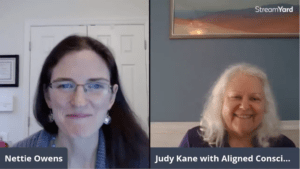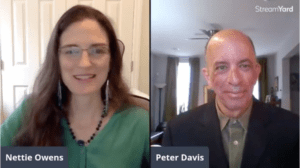What do diversity, equity, inclusion, and belongingness have to do with business?
Part of it is everything that’s going on in our country right now. 2020 has run us through the wringer so many times over and in so many ways, but it’s also made visible all of these things that we’ve been sweeping under the rug for 450 years, but really the last few decades as well.
This is important for businesses because as we look at population trends in America, we are going to a state where the majority of the future workforce, the future consumers, and customers – all of them don’t identify as white. So, with that being said, if you are not including their perspectives, and if you’re not giving them access to services, products, and experiences in an equitable way – in which they feel like they belong – you’re really losing out on a lot of profit from the consumer perspective.
You’re also losing out if you don’t think about diversity, equity, inclusion, and belongingness. And, I add all four of those because right now, we’re still focused on diversity numbers. We have to get past that. The workforce that you are going to have as a business owner, the talent that you would leave on the table by not creating equity, inclusion, and intentional inclusion and belonging, is really going to hurt your business. This is the only way your business is going to sustain itself into the future and actually have a chance of being profitable.
“A sense of belonging is the number one reason why somebody will stay or leave their place of employment. And so many times, as business owners, we imagine that if we pay them more, if we give them more training, or provide recognition – which is important – we think that will be enough to make them stay. But really, people need to feel like they belong at their jobs.”
What does belongingness mean as a business owner?
That is such a great question, and it goes back to a fundamental human need. This need to belong is the origin of social psychology as a whole field. We know that this need to belong is universal, and what that really means is that somebody you know, a particular person, an individual – they feel like they belong if they are able to include themselves and be included in conversations, in decisions, in the informal, unspoken norms and etiquettes and accompany all of those because of their uniqueness, not despite it.
That’s where the belongingness aspect comes in.
Now what we know now is that 61% of the US workforce actually covers or hides essential aspects of themselves because they feel like they’re going to be thought about negatively, they’re going to be judged, or they’re going to be criticized, and that’s especially salient in moments of feedback and conflict resolution. They just shut down. So, they are not able to bring their whole selves to the situation and thrive and be able to participate, be able to be seen, heard, valued and appreciated, and recognized because of their unique journey.
That’s what belongingness is about. It is that I recognize that you are different. I recognize your differences, and I embrace them. I respect them, and I value you because you bring in a unique perspective.
“If people showed up as their whole self, what’s possible? If you know intimately about the things that your employer is talking about in the market that they want to reach, and you know about that because of your personal experience, and you can share – how much more valuable would someone be to an employer? And how valuable would it be as an employer to have a workforce of people who feel like they can contribute with their whole selves?”
Why is it harmful for businesses to participate in performative allyship as opposed to authentic allyship, and how can we as businesses make sure that we’re being intentionally inclusive?
The big harm with performative allyship is that it actually erodes trust. If all you’re doing is just talking the talk, and you’re taking advantage of the moments where you can sort of slip a few words in and then sit back and relax, people notice that – especially in this day and age of social media and with information being so rapidly disseminated.
People notice when you don’t have real deliverables and when you don’t have real actions. I think our mutual friend, Ruthie Bowles, actually did a great post about that with the Stitch Fix statement. So, something like that, where you don’t have things that you hold yourself accountable for or other people can hold you accountable for, immediately erodes trust.
And consumers are becoming more and more socially and societally conscientious. As this movement is happening, it’s very easy to recognize performative allyship because you’ll see one or two posts on them, and then there’s nothing.
“If the companies that you’re working with or if your company only made the big blanket statement that every single company provided a month ago, and you’ve done nothing else, then it may be time to look in the mirror and ask yourself some deeper questions.”
3 Action Steps
- Think about diversity, equity, inclusion, and belongingness because without doing so, you risk leaving talent on the table and hurting your business.
- Recognize, embrace, value, and respect the unique perspectives that people can bring to you and your business.
- Participate in authentic allyship so that you don’t erode trust.
Be sure to connect with Dr. Aparajita Jeedigunta on LinkedIn.
Please comment below. I would love to hear from you.














No comments yet.